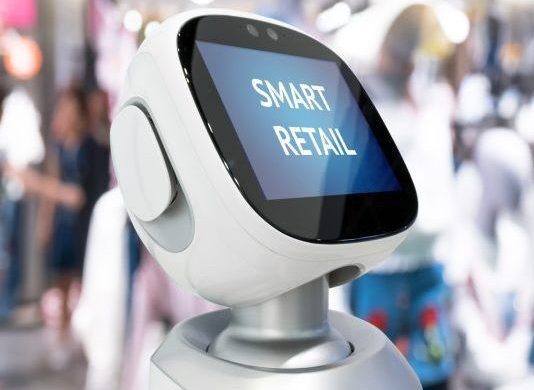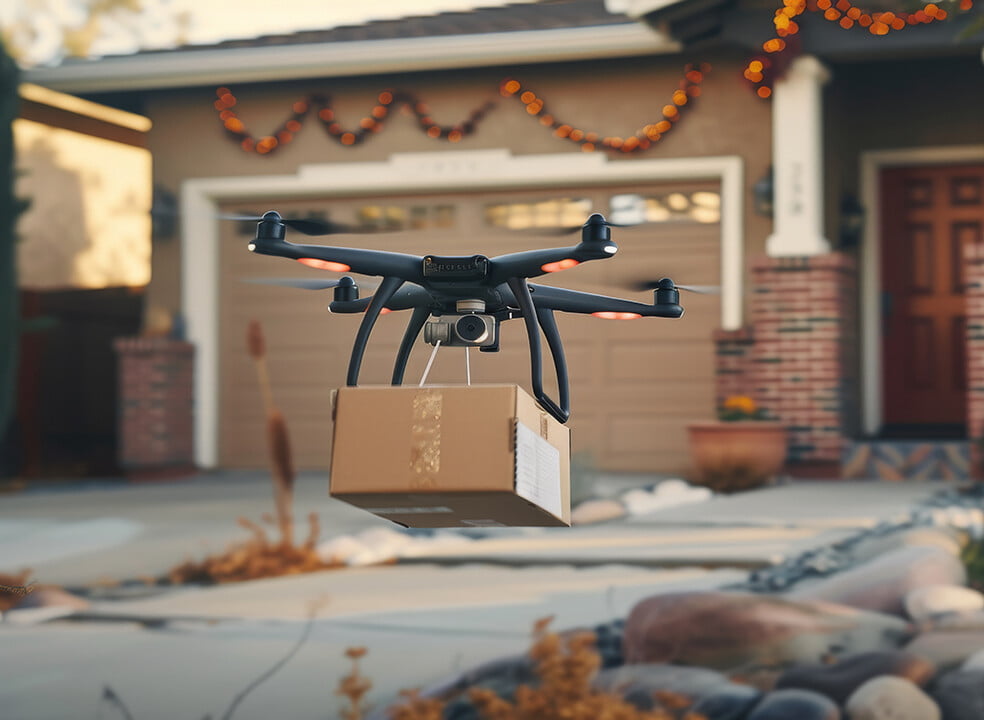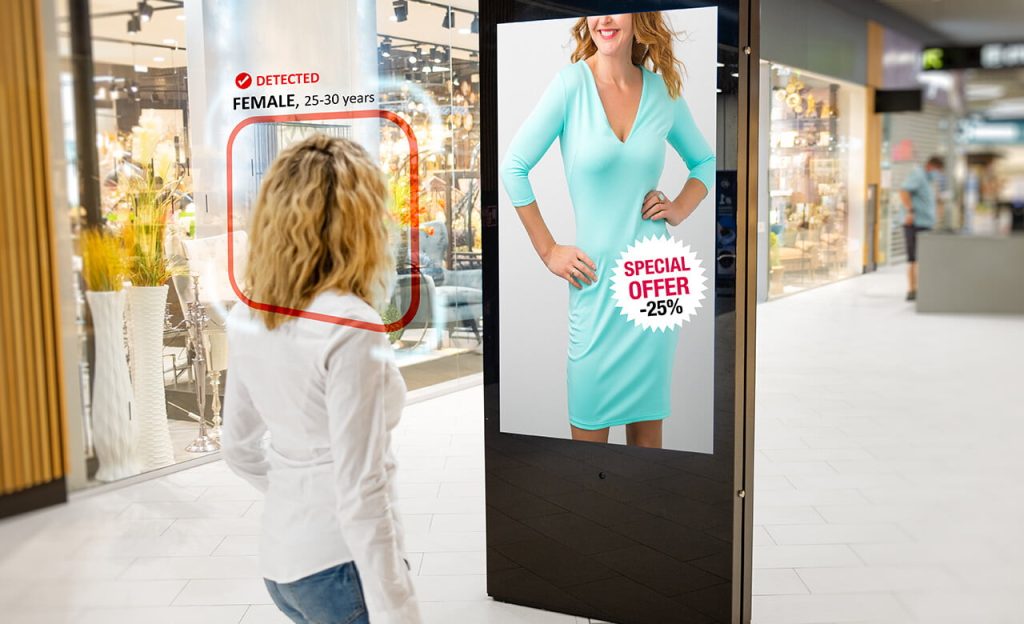In today’s world, industrial technologies are evolving and advancing at lightning speed. This led the retail industry and retailers to deal with the challenge of re-establishing their physical shops for tech–savvy consumers. Undoubtedly, game-changing technologies are reshaping retail’s present and redefining its future. However, some more factors are playing a leading role in this crucial phase of industrial advancement.
Retail Landscape and Transition to the Future
These days, the global retail landscape is experiencing an enormous transformation. It has become a complex but sophisticated web across the world, integrated with innovation, customer-centric approaches, and technological advancements. The COVID-19 pandemic took e-commerce retailing to unparalleled levels. This led to the reshaping of traditional shopping patterns and encouraged the easy integration of online and offline consumer experiences.
In the future, global retail will likely experience a huge transformation due to the emergence of technologies such as AI, robotics, AR/VR, and IoT. Moreover, in the fusion of consumer convenience and personalized experience, there are some other aspects that will revolutionize the consumer’s online and in-store experience and elevate this industrial advancement to the next level. Let’s address them one by one.


Technological Innovations
The tech transformations in retail keep moving forward, redefining the entire retail experience as it goes. Even COVID waves and their subsequent economic effects were unable to stop it. In 2022, as reported by Grand View Research, the global retail technology market had a valuation of USD 30.25 Billion. It anticipated a CAGR of 29.1% from 2023 to 2030, which signifies a profound evolution in global retail technology. This shows that the retail future is not just about product selling but also about creating unforgettable experiences. And here, advanced technologies will play a leading role.
It is undeniable that technology and innovations will open the door to endless possibilities for the retail industry. Some of these technologies are as follows:
- Artificial Intelligence (AI): AI will revolutionize retail by analyzing big data, enabling retailers to decode consumer behaviors and make personalized recommendations, streamlining inventories, and performing predictive analysis.
- Augmented Reality (AR) and Virtual Reality (VR): These immersive technologies will bring products, services, and retail spaces to life and empower consumers to virtually visualize them before making purchasing decisions.
- IoT: With smart inventory management, personalized customer experiences, and real-time data insights, IoT will enable retailers to create smart stores with interconnected systems for a seamless shopping experience.
- Robotic Automation: Automated frameworks and systems will streamline the supply chain’s backend operations like warehousing, logistics, customer assistance, etc., augmenting efficiency and reducing human error.
- Voice Commerce: Voice-enabled shopping will allow customers to browse, select, and purchase items through voice assistants, simplifying the shopping journey and catering to convenience-driven consumers.
In the future, these technologies will represent a new era in which retail exceeds business boundaries, delivering more personalized, immersive, and efficient shopping platforms.
Omnichannel Strategies
Omnichannel strategies stand as pivotal frameworks within the retail sphere. They promote the integration of multiple platforms to deliver a unified and smooth customer experience. Notably, omnichannel retailers can retain 91% more customers than those retailers who stay on a single channel for their purchases, highlighting the elevated importance of these strategies.
This shows the substantial potential for revenue growth and customer value that an omnichannel approach brings to the table. Even in the future, evolutions in omnichannel strategies in retail are expected to revolve around achieving multiple milestones, such as:
- Unified Consumer Experience: This will prioritize a cohesive customer journey and ensure that consumers will have consistent experiences across both online and offline channels, fostering brand loyalty and satisfaction.
- Mobile Commerce: With mobile commerce, retailers will be able to leverage mobile platforms to engage customers and offer them the flexibility to browse, purchase, and interact seamlessly across devices.
- Brick-and-Click Integration: It will empower retailers to leverage the strengths of both channels and will offer customers the convenience of online shopping and the tangible experience of in-store visits.
When evaluated together, these components will establish the omnichannel strategy as the foundation of the future retail industry. It will set the stage for an integrated retail environment and give priority to accessibility, customer-centricity, and a consistent brand experience across various platforms.
Consumer Behavior and Trends
The constant analysis of consumer behavior and evolving trends is and always will be paramount for retail businesses. It allows retailers to customize their strategies, services, and experiences to meet evolving consumer needs and preferences. Global retail is currently witnessing a significant shift in consumer behaviors. This shift is largely influenced by tech advancements and changing lifestyles. Consumer behavior will continue to evolve with retail trends toward convenience, personalization, and ethical consumption.
As the industry continues to transform, several key trends in consumer behavior and shopping practices will emerge in the near future, such as:
- Shift in Shopping Habits: Majority of shoppers now start their product searches online, and this will grow in the future. This indicates a substantial movement from traditional in-store browsing to online exploration.
- Personalization Demand: With the demand for personalization, consumers will seek tailored experiences and products that resonate with their individual preferences.
- Rise of Social Commerce: Reliance on social media platforms for shopping, recommendations, and product discovery will increase.
The future trajectory of consumer behaviors will orbit around such trends. Even then, consumer behavior and its analysis will always be at the center of the nucleus.
Data and Analytics
Big data and data analytics are the key players in the retail industry’s explosive growth and digital revolution. Retailers are more reliant on data as technology continues to offer profound insights into consumer preferences, behaviors, and market trends. According to Fortune Business Insights, the retail sector’s data analytics market is predicted to grow from USD 5.26 billion to an incredible USD 18.33 billion by 2028. The substantial surge in growth highlights the key role that big data analytics plays in guiding strategic decisions, enhancing operational efficiency, and delivering a smooth and customized consumer experience. The future of retail will be redefined by several important data analytics applications, some of which are listed below:
- Big Data Utilization: Diverse data sources will enable retailers to gain comprehensive insights into consumer behaviors and market trends.
- Predictive Analytics: With accurate predictive analytics, the retail industry will forecast trends, optimize inventory, and personalize customer experiences proactively.
- Ethical Data Use: A heightened emphasis on ethical data practices will ensure consumer privacy, transparent data handling, and responsible AI integration for equitable decision-making.
Big data analytics and management frameworks will empower retailers to stay agile and responsive in an ever-evolving market.
Sustainability and Social Responsibility
The tech advancements in retail hold immense potential to sustain themselves in the evolving sector while fulfilling their moral responsibility towards society. In the future, such advancements will encourage retail businesses to contribute to environmental well-being and build trust and loyalty among conscious consumers.
Green Initiatives
Innovations such as energy management, eco-friendly packaging, and IoT for efficient resource utilization have the potential to take center stage. These technologies will empower retailers to adopt eco-friendly practices and promote social well-being. Such tech-driven initiatives will reduce the industry’s ecological footprint. It will also encourage businesses to function in a more environmentally conscientious approach.
Corporate Social Responsibility (CSR)
The integration of AI, IoT, and robotics in businesses will enable retailers to optimize their supply chains, reduce waste, and enhance energy efficiency levels. Such technologies empower consumers with knowledge of sustainable choices, and details about their product’s environmental impact. These advancements will enhance operational efficiency with the least impact on nature. Additionally, it will underscore a commitment to social responsibility by prioritizing ethical conduct, diversity, community involvement, and societal well-being within the retail sector.
This convergence of advanced technology and a conscientious business approach promises a future where the retail sector will thrive while prioritizing environmental conservation and social equity.
Conclusion
The retail sector has already undergone a monumental shift. This shift is propelled by current technological advancements, new business approaches, and changing consumer behaviors. In this transformative phase, adaptability becomes the cornerstone of success.
Those who embrace these changes, incorporate technology, and stay attuned to consumer needs will shape their future in the retail sphere. The ultimate aim for retailers should be not just to anticipate these changes but to actively participate in their implementation. The revolution calls for us to develop a retail landscape that not only fulfills consumer and market demands but also promotes environmental sustainability and social welfare.
Are you looking to shape a future where retail not only meets but exceeds expectations? Connect with us to have a more connected, responsible, immersive, and innovative retail experience.








